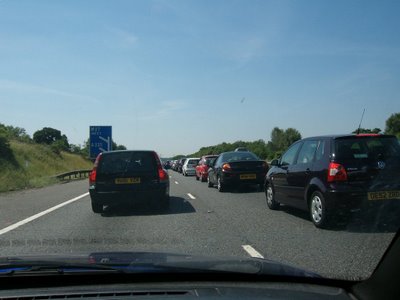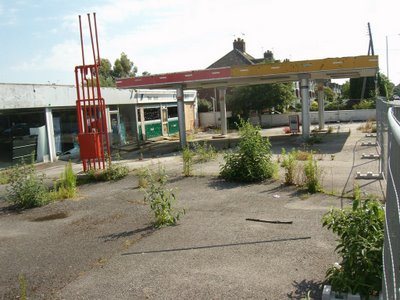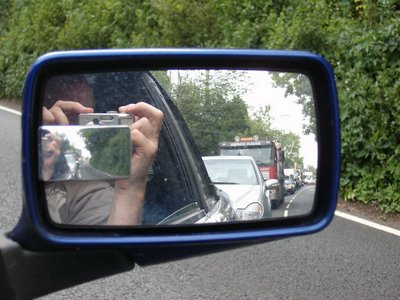


Images of roads packed with cars, oil reigning supreme, have uncanny echoes of the 1930s when Britain's railways were at their zenith, when the races to the north between the streamlined and luxury trains of the LMS and LNER were the biggest transport story going. Just 30 years later the tory/labour alliance headed by the twin dragons of Beeching and Castle turned the railways to mush with dodgy accounting, a sloping playing field tilted towards the morons in the road transport industry and an impossible dream - roads were going to last for ever, fuel too cheap to meter, every house would have two or three cars, congestion was going to be a thing of the past as every town and village got its lovely by-pass ...
Hmmmm. Hindsight's a wonderful thing. Now even the BNP is pushing Peak Oil and we all know that cars and roads will become a thing of the past so quickly that we'll barely realise what's hit us. Personally I think estimates of 30-40 years of remaining oil reserves are wildly optimistic, these figures don't take into account increasing consumption, wars and conflicts, waste and plain economics.
As petrol and diesel prices rise inexorably more and more of us will become reluctant non-car owners. The road network will shrink as maintenance costs become uneconomic with reducing use. Obviously rail, with its 300% advantage in energy terms relative to roads, will become the primary transport mode, using the variants of heavy rail, light rail, tramways and ultra-light transit, but how on earth are we going to build thousands of miles of railways/tramways in just a few years? Perhaps all local communities should take the iniative now, as we are in Norton Radstock, and start building the railways before Peak Oil hits with full force?
What's That Coming Over the Hill, Is It a Monster?


1 comment:
I am glad I got a chance to own a car in my lifetime, but I agree with you that something will need to replace them with the expanding populations.
Post a Comment